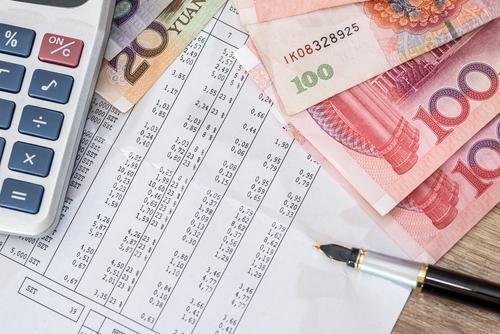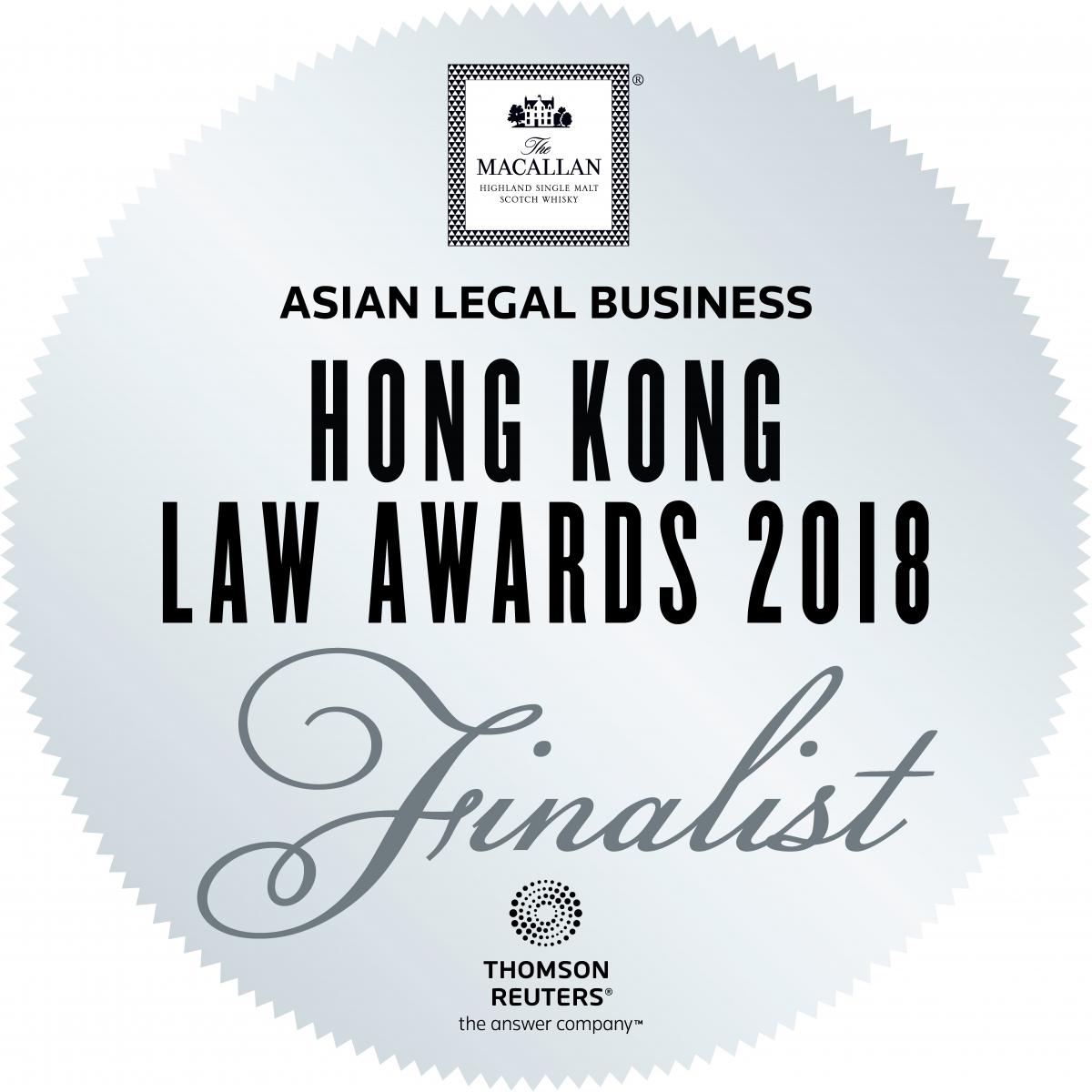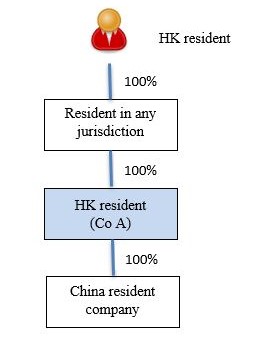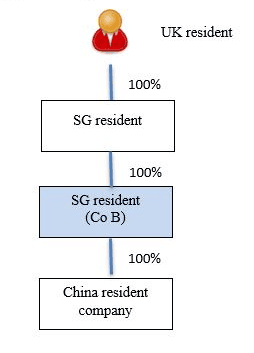Major amendments to China’s Individual Income Tax Law (“IIT Law”) were proposed by the Standing Committee of the 13th National People’s Congress in June 2018 and after a period of public consultation which ended in July, the Draft Amendment (“Draft”) will likely take effect in October and be fully implemented in January 2019.
The key reforms include:
- New definition of tax residency with revised criteria for determining tax residency status for foreigners
- Augmenting current system of taxing individual income
- Revised tax rates and reshuffling of taxable income brackets
- Expanding standard basic deduction and introducing additional specific deductions
- Introducing new anti-avoidance rules for individuals
- Implementing a taxpayer identification system
Changes to Tax Residency
The Draft introduces the concept of resident and non-resident for IIT purposes and will reduce the threshold for tax residency from 1 year to 183 days. This means that any foreign individual who has stayed in China for 183 days or longer in any tax year will be considered a resident, with income sourced within or outside China subject to IIT.
This shortened tax residency will, if passed, repeal China’s longstanding “5-year tax rule”. Under the 5-year tax rule, a foreign resident’s worldwide income only becomes subject to IIT after the resident remains in China continuously for five years. Foreign individuals were able to avoid having their overseas income subject to IIT by temporary absences from China prior to the 5-year threshold.
Reclassification of Taxable Income
Under the current IIT Law, all income received by individuals taxable was lumped together for IIT purposes. The Draft designates 4 categories of employment-related income (including income from salary and wages), income from independent personal services, income from author’s remuneration and royalties, as “Comprehensive Income”. These will now be subject to one set of progressive tax rates in determining the IIT payable on them. All tax residents will be taxed on an annual basis for these while non-residents will continue to be taxed on a monthly or as and whenever taxable income arises.
Income from business operations conducted by self-employed taxpayers will now be reclassified as “Business Operations Income”, and all income from contractual/leasing operations will either be treated as Comprehensive Income or Business Operations Income depending on the circumstances.
Income from interest income, dividends, income from property leasing, income from transfer of assets, incidental income and other income will continue to be taxed separately at the rate prescribed for those categories.
Revised IIT Rates & Tax Brackets
In an effort to alleviate the IIT burden on low and middle-income earners, the Draft consolidates certain taxable income categories and revises both the rates of IIT and tax brackets that will apply to these income categories, as illustrated in the 2 tables below:
|
Under Current IIT Law |
Under the Draft |
||
|
Categories |
Tax rates |
Categories |
Tax rates |
|
Income from wages & salaries |
3%-45% |
Classified as “Comprehensive Income” |
3%-45% |
|
Income from remuneration for personal services |
20%-40% |
||
|
Income from authorship |
20% |
||
|
Income from royalties |
20% |
||
|
Income from operations by individual and commercial households |
5%-35% |
Classified as “Business Operation Income” |
5%-35% |
|
Income derived from contractual or leasing operations |
5%-35% |
treated as either Comprehensive Income or Business Operation Income |
|
|
Income from interest, dividends & bonuses |
20% |
unchanged |
|
|
Income from lease of property |
20% |
||
|
Income from sale/transfer of assets |
20% |
||
|
Other income |
20% |
||
|
|
Comparison of Tax Brackets for IIT |
||
|
on Monthly & Annual Taxable Income |
|||
|
Bracket |
Amount (RMB) under Current IIT Law |
Amount (RMB) under Draft |
IIT rate (%) |
|
1 |
up to 1,500/month |
up to 3,000/month |
3 |
|
up to 18,000/yr |
up to 36,000/yr |
||
|
2 |
1,501-4,500/month |
3,001-12,000/month |
10 |
|
18,001-54,000/yr |
36,001-114,000/yr |
||
|
3 |
4,501-9,000/month |
12,001-25,000/month |
20 |
|
54,001-108,000/yr |
114,001-300,000/yr |
||
|
4 |
9,001-35,000/month |
25,001-35,000/month |
25 |
|
108,001-420,000/yr |
300,001-420,000/yr |
||
|
5 |
35,001-55,000/month |
35,001-55,000/month |
30 |
|
420,001-660,000/yr |
420,001-660,000/yr |
||
|
6 |
55,001-80,000/month |
55,001-80,000/month |
35 |
|
660,001-960,000/yr |
660,001-960,000/yr |
||
|
7 |
over 80,000/month |
over 80,000/month |
45 |
IIT payable by lower and middle-income earners will be significantly reduced under the reforms. So, for example, a resident national with a taxable income of RMB 40,000 per month currently paying RMB 8,195 in IIT will see her tax burden fall to RMB 6,090 or less depending on which specific deductions she and her family qualify for.
Augmented Statutory Deductions
The standard basic deduction (i.e. the first part of the salary that is not subject to IIT) is to be increased slightly from RMB 3,500/month for Chinese employees (and RMB 4,800/month for foreigners) to RMB 5,000/month for both.
Arguably the single most important amendment to the IIT Law is the long overdue augmentation of deductible expenses for Chinese taxpayers. Under pre-existing implementing rules, expatriates have long been allowed to deduct 5 categories of expenses from IIT but since the Draft is silent about several of those categories, it is uncertain whether or not all of those expenses can still be claimed after the Draft becomes law. If not, the new IIT rules will significantly increase the tax burden of expatriates working in China。
The new categories of expenses that the Draft does allow as deductions are as follows:
- Children’s education expenses
- Expenses for taxpayer’s own continuing education
- Health care expenses for serious/major illness
- Mortgage interest (on principal residence)
- Rental expense (for principal residence)
These new deductions are in addition to those that Chinese taxpayers can already claim for social insurance and housing fund contributions and commercially-sourced medical insurance.
Those familiar with HR practices in China will know how time-consuming it is to track, account and make filings for employee deductions, many of which vary from month to month. In the coming months, employees will need to work closely with their employer’s finance / HR departments to ensure that all claimable special deductions are taken into account.
New Anti-avoidance Rules for Individuals
Under the current IIT Law, the collection and administration of IIT is governed by the Administrative Law of the PRC on Tax Revenue Collection. These are being reinforced by provisions contained in the Draft which address, among other issues, tax evasion/avoidance. In particular, Article 8 of the Draft introduces General Anti-tax Avoidance Rules (“GAAR”) for individuals which gives tax authorities wide latitude for reviewing situations under which individuals are seeking to reduce their IIT burden. Unless a justified business-related purpose can be demonstrated for those arrangements, they may be disallowed.
Art. 8 also outlines specific scenarios which are liable to challenge by China’s tax authorities (e.g.: non-arm’s length transactions; business arrangements channeled through tax havens; arrangements deriving tax benefits but lacking reasonable commercial substance, etc.).
The new GAAR are only the most recent step that China is taking to step up tax enforcement efforts and tax authorities are, no doubt, hoping to rely on the tax agreements that China has put in place with 103 countries including the USA, the UK and Canada.
To avoid expensive tax audits and penalties, resident taxpayers should review their sources of income and obtain whatever professional advice they need to ensure their arrangements comply with the new rules.
New Administrative Arrangements
The Draft outlines new administrative arrangements aimed at, among other things, modernizing the collection process and incentivizing/penalizing taxpayers.
Under the new system, all taxpayers will be allocated unique identification numbers to facilitate IIT collection and internal administration arrangements.
The Draft also includes measures aimed at streamlining the tax refund claim process. In situations where taxpayers have paid too much IIT (e.g.: due to under-reporting of deductions), they can file claims and (hopefully) be paid out after the annual tax reconciliation on March 31st.
Final Remarks
These reforms are some of the most important and comprehensive since the passing of the original IIT Law in 1980 and will impact nearly all working age individuals in China.
Expatriate residents should expect to be paying significantly more IIT and their overseas income will be subject to far greater scrutiny. At the same time, the tax burden of millions of local working class and middle-income taxpayers will experience a windfall as their IIT burdens are reduced.
Since employers remain statutory IIT withholding agents for their employees, the reforms will certainly impact the payroll/finance operations of every company in China. Given the scope of the reforms, adapting to them will require complex adjustments that will require months to implement properly.
The new tax rates and brackets will be effective from October 1, 2018. Foreign companies with operations in China will then have only a few months to review their payroll and IIT declaration processes and communicate whatever changes are needed with their expatriate and local employees to ensure a smooth transition. Tax equalisation arrangements with expatriate employees need to be reviewed and to the extent that any of these employees incur additional taxes due to loss of deductions, employers will need to formulate a policy and plans for addressing these.
In the meantime, all taxpayers with outside sources of income and/or expenses to claim should begin gathering together supporting documents and obtaining whatever professional advice they need to prepare for these reforms.
 香港中环雪厂街二号圣佐治大厦五楼503室
香港中环雪厂街二号圣佐治大厦五楼503室 +852 2868 0696
+852 2868 0696











